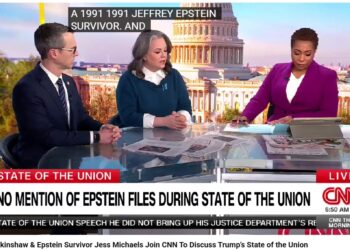During the recent debate on the judicial nomination of Tracy Thorne-Begland for appointment to the General District Court bench, social conservative members of the House of Delegates repeatedly claimed that Mr. Thorne-Begland was unfit to serve as a judge because he had violated his duty to his country when he chose to declare his sexual orientation while in active military service. They likewise claimed that he betrayed his oath as a commissioned officer, thus calling into question his integrity and faithfulness to his mission. These Delegates sought to vote down Mr. Thorne-Begland’s nomination, extolling the sanctity of an oath and a duty that he allegedly broke.
For the moment, put aside the fact that the Virginia General Assembly chose to let ignorance prevail in its consideration of a learned individual for judicial appointment. Put aside the fact that the nomination of a decorated former Navy pilot, career prosecutor, loving father, and highly respected member of the community was derailed due to the fear-mongering of a coalition seduced by the McCarthyistic power of the bully pulpit.
Put all of that aside and contemplate how our representatives in the House of Delegates regarded their own oath of office, their own duty of service, when it came time to vote on Mr. Thorne-Begland’s nomination.
Out of 100 members of the House of Delegates, only sixty-four members cast a vote on this critical, judicial nomination. Ten members abstained, and twenty-six members simply did not vote.
More than one-third of our elected representatives in the House of Delegates chose not to cast a vote on a judicial nomination.
Prior to assuming office, each member of the House of Delegates must swear an oath of service, which states, “I do solemnly swear (or affirm) that I will support the Constitution of the United States, and the Constitution of the Commonwealth of Virginia, and that I will faithfully and impartially discharge all the duties incumbent upon me … according to the best of my ability, (so help me God).” Va. Code §49-1. Furthermore, Rule 30 of the House of Delegates, passed in January 2012, dictates that “No member shall absent himself from the service of the House unless he has leave granted by the Speaker or is sick or otherwise unable to attend and such leave shall be entered upon the Journal.”
These Delegates swore faithful and impartial discharge of all the duties incumbent upon them, which presumably includes voting upon judicial nominations. They took an oath as officers of the Commonwealth, as elected representatives of the people of Virginia. There is no exception clause for when the vote may be controversial. There is no exclusion footnote for when the debate makes a representative uncomfortable. There is no expiration time for when the debate lasts past the midnight hour.
Faithful and impartial discharge of duties is unequivocally clear – steadfast, unbiased representation. Nevertheless, more than one-third of the House of Delegates equivocated when called upon to exercise their basic duty – to vote.
Edmund Burke is credited as once saying, “All that is necessary for evil to triumph is for good men to do nothing.” Through its treatment of Mr. Thorne-Begland’s nomination, the Virginia House of Delegates twice failed all Virginians. First, it failed to appoint to the Virginia bench a bi-partisan nominee of unquestionable character and legal acumen. Second, it failed to fulfill the oath it swore to Virginians by not even showing up to vote.


![[UPDATED with Official Announcement] Audio: VA Del. Dan Helmer Says He’s Running for Congress in the Newly Drawn VA07, Has “the endorsement of 40 [House of Delegates] colleagues”](https://bluevirginia.us/wp-content/uploads/2026/02/helmermontage.jpg)















